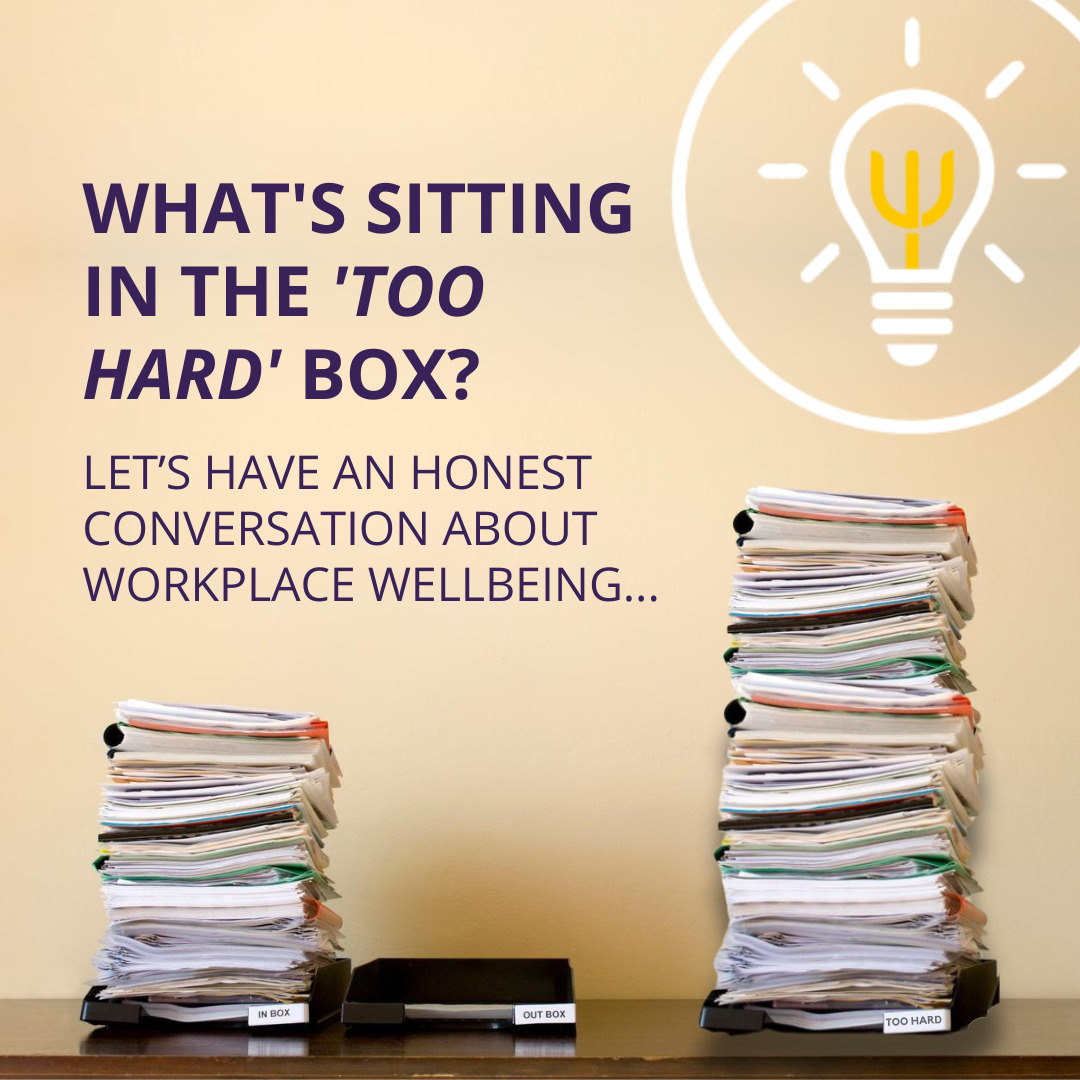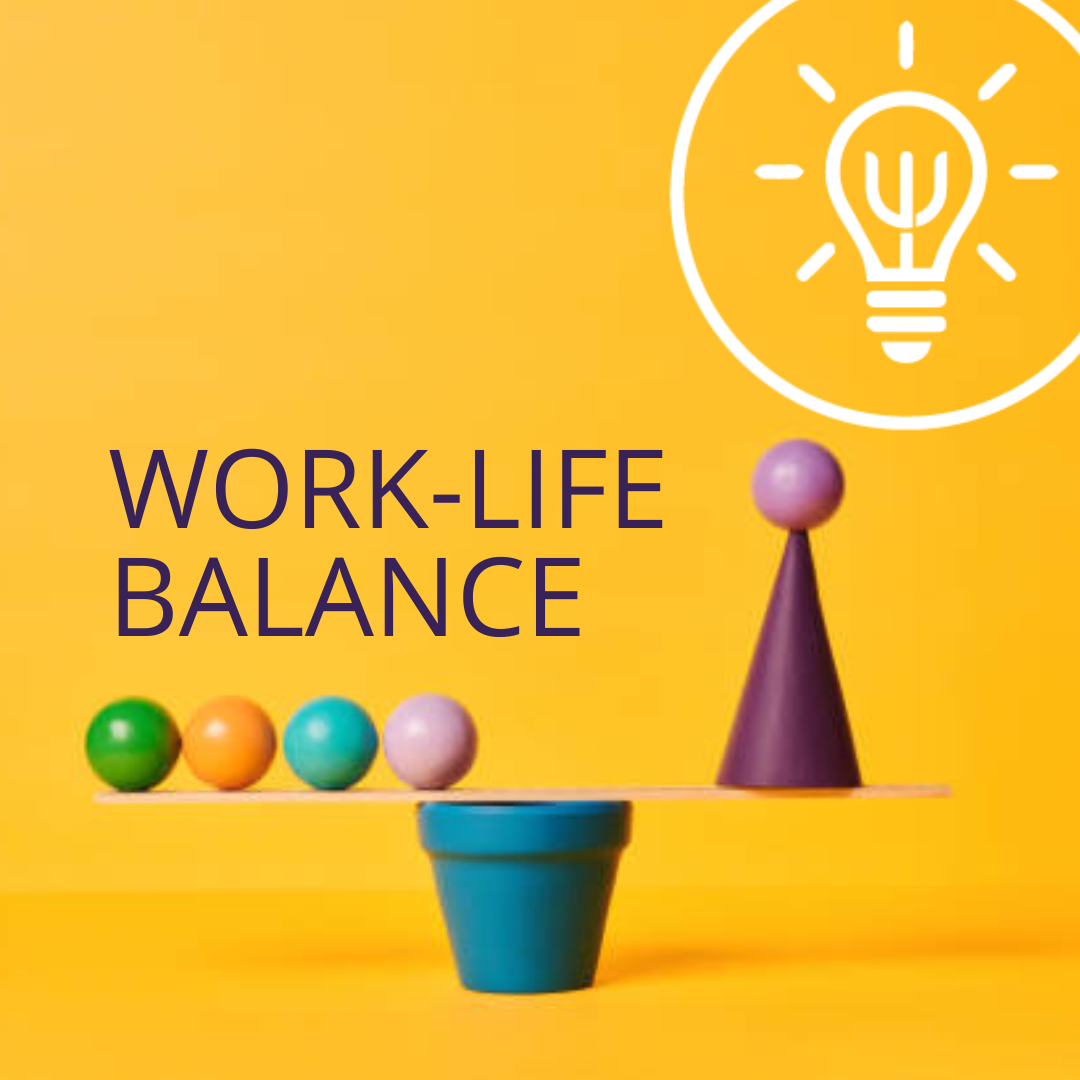When it comes to wellbeing, why managers aren’t doing more? Here are their top four reasons.
There is absolutely no doubt that the events of the last 18 months have firmly put mental health and wellbeing on agenda for many organisations, if it wasn't there already.
This is good news. As someone who was researching the effects of stress on performance back in 2000, and at that time encountered a lot of resistance to even acknowledging the issue, it's great to see people finally having meaningful and proactive conversations about stress. As well as people talking about mental health and wellbeing more widely.
However, I believe we have a bit of a gaping hole in our first line of defence in detecting, preventing and supporting poor mental health in our workplaces: our people managers.
Over the last couple of months, I've been spoken to and listened to numerous HR professionals and wellbeing practitioners about how we can support, encourage and embed better wellbeing in the workplace. And one thing that keeps coming up is the absolutely critical role that line managers play in making this happen.
This is also reflected in the results of this year's CIPD Health & Wellbeing at Work Report 2021, with only a third of respondents describing their managers as confident and competent to spot the early warning signs of mental ill health, and 38% as confident to have sensitive discussions and signpost to expert sources of help if needed.
Flipping those numbers round, that suggests 70% managers don't know how to spot the early signs of poor mental health and over 60% don’t know how to have the conversation, even if they did. They are the first line of defence, and right now that defence is not strong enough. So, what is going wrong?
Why aren’t managers doing more?
So, why do managers hold back from having conversations about mental health and wellbeing? From my experience of working with organisations and their people managers over the last 20 years, it isn’t because they don’t care. Whilst many may get promoted into positions of leadership due to their technical prowess rather than managerial abilities (that’s a whole other article), most take on that responsibility with utmost seriousness, driven by a passion for developing others and a desire to do right by their people.
So, if managers do care about their people's wellbeing, why aren’t they doing more and why do HR have so little confidence in their abilities?
When thinking about this question, it reminded me of a book by Golding & Diaz (2020), founders of the Workplace Mental Health Institute in Australia, which I think provides a good summary and insight into this question very question. Here is a summary of their answer to the question 'why aren’t managers doing more?' and the top concerns that they've come across when speaking directly to managers.
It's too personal.
In the first instance, Golding & Diaz propose that today's managers have inherited a legacy mindset of 'needing to keep a professional distance' from the people they lead. They see this as a holdover from the industrial age, when work was done primarily in factories and employees were effectively treated as 'cogs in a machine'. The prevailing mindset was about being able to maintain production, perform reliably and at maximum efficiency. The relationship is one of an Operator (the manager) and its machine (the staff). Just as it would be seen ridiculous to ask a machine 'Are you okay?', many may managers today similarly feel that asking their employees about their mental health or wellbeing as being not appropriate. It's too personal. It crosses a line.
In summary, Golding & Diaz believe that the prevailing management paradigm just isn’t equipped to deal with mental health issues. In addition, from the managers themselves, these are the top three reasons managers give about why they don’t step up and do more
I really don’t have time for this.
It's been a hell of a ride for organisations and their leaders and managers over the last 10-15 years. The impact and then recovery from the recession of 2009, and more recently Brexit, a global pandemic and the drive to shift all non-front-line roles to 'working from home' – and now the push from government to get everyone back in the office, whilst figuring out what is 'right' for their employees, their business and their customers. It's a lot.
If managers are saying they don’t have the headspace or energy to get involved in the mental health or wellbeing of their employees – its probably because they are flat out managing their own.
Will this look like harassment?
For those who do decide they want to do something, a real concern is how the team member or employee will react. Will they take exception to the line of questioning? If so, will they lodge a formal complaint for harassment, or even constructive dismissal?
This is a valid concern, as it is likely the other person is in a heightened state of sensitivity, with many people with a mental health concern reporting that they feel bullied or harassed more often. So, for a Manager the fear of having a bulling or harassment claim brought against them has potentially serious consequences. Not surprisingly this can then seriously curtail a manager's confidence in their abilities to have the conversation, not to mention their willingness to even broach the subject in the first place.
What if I make it worse?
The risk of a bullying or harassment claim being brought against a manager addressing a mental health concern is very low, when done properly. And therein lies the problem: 'properly'. Many managers who are genuinely concerned about a colleague or team member's mental health, hold back and hesitate out of fear of making it worse or saying the wrong thing.
The reason why Managers don’t feel confident with this stuff is that they have never been taught the skills. No business degree, MBA or even HR qualification tends to teach the skills needed to detect and address mental health concerns as part of their studies. Instead, Managers, leaders, and to some extent, even HR professionals are left to rely on their own experience, reading and instincts, and hope that they will get it right, and not make it worse.
In summary, Managers want to do more, they just don’t feel as if they have the skills, confidence or time to do it well. They’d rather not do it at all, than get it wrong. The challenge for organisations therefore, is to provide the tools and support to up-skill this vital piece in the putting together the workplace wellbeing jigsaw.
Find out more…
If you would like to know more about workplace wellbeing and the services Psychology Works offer in this area, please don’t hesitate to contact us.
In the meantime, if you’ve enjoyed Maria’s ramblings why not check out some of our other blogs and thought pieces. For real time updates and insights you can also find us on LinkedIn, our social media platform of choice: @PsychologyWorks and @mariagardner
The encore.
Interest in wellbeing and still wanting more? If so, then why not check out these other client stories, articles and thought pieces on wellbeing and organisational change….




















